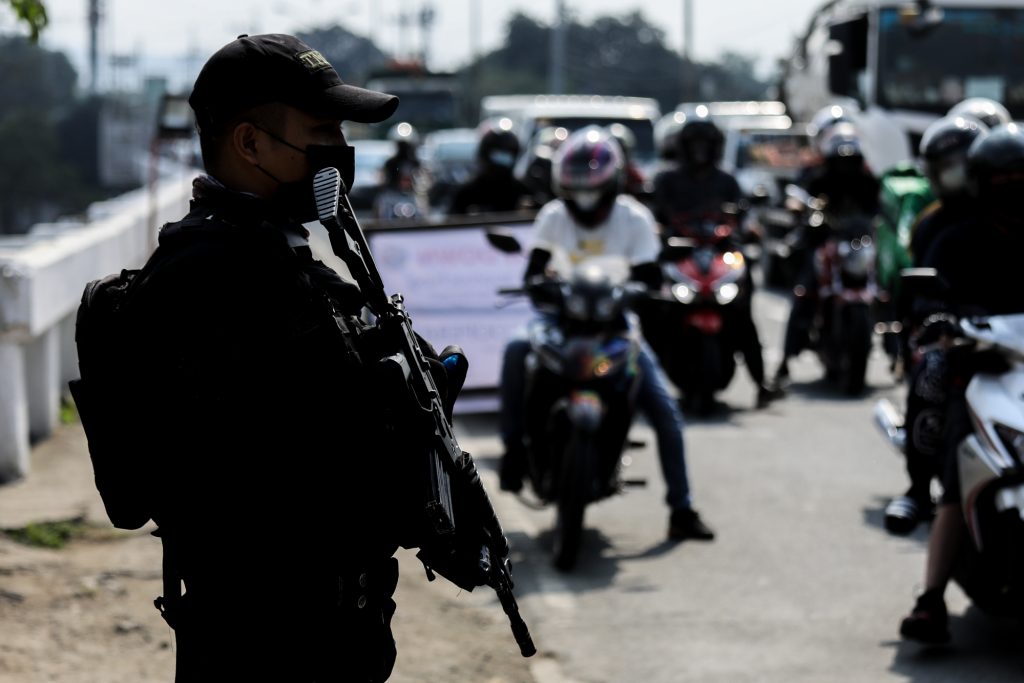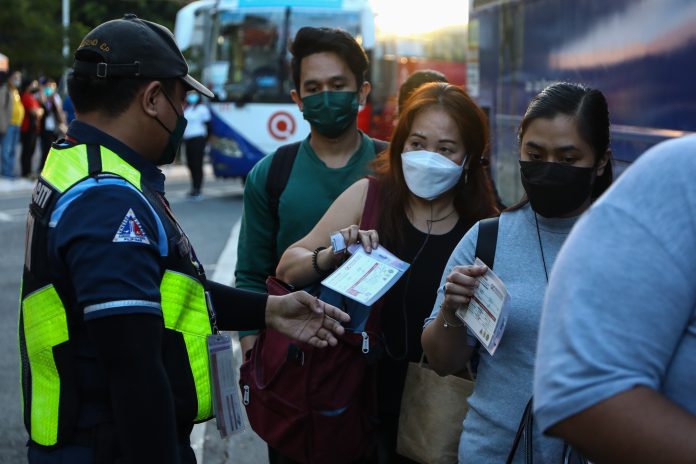The Philippines has started to implement its “no vaccination, no ride” policy in the national capital on Monday, January 17, amid opposition from various sectors.
Under the policy, people who are not fully vaccinated against COVID-19 are banned from riding public transport within and to and from the capital, unless they show proof that they are on urgent errands.
The restriction will last until the end of January as coronavirus cases continue to soar in the country.
As of Monday, January 17, the Philippines has recorded 37,070 new COVID-19 cases. There were 33,940 who recovered while 23 died, according to the Health department’s daily bulletin.
There are now 290,938 active COVID-19 cases in the country, while 52,929 have died since the start of the pandemic in 2020.
More than 54 million of about 109 million Filipinos have been fully vaccinated in a government campaign that has initially been saddled with delays and public hesitancy.
Several groups, including the Catholic Church, have raised concerns over the “no vax, no ride” policy, saying it would impact most on drivers and daily-wage earners.
“Please, let us not make the already poor Filipinos who are affected by the policy suffer,” said Father Jerome Secillano, executive secretary of the public affairs committee of the bishops’ conference.
“Let us give all Filipinos the chance to live peacefully in the midst of the pandemic,” said the priest in an interview over Church-run Radio Veritas 846.
The priest said that people are already finding it difficult to look for a living. He appealed to the government to help the people instead of making them suffer with new restrictions.

Human rights organization Amnesty International slammed the new restrictions.
“The way out of this pandemic is not to impose unacceptably disproportionate restrictions and punishment on those who are unvaccinated,” said Butch Olano of Amnesty International Philippines.
He warned that the rule would unfairly target the poor who cannot work from home and “further erode trust in the government.”
The country’s Commission on Human Rights said earlier that the travel restrictions “effectively restricts the exercise and enjoyment of fundamental rights.”
The government, however, defended the controversial ban in the national capital.
The Department of Transportation said the temporary “no vaccination, no ride” policy was designed to protect everyone and avoid an economically damaging shutdown of the public transport system during the latest spike of COVID-19 cases.
“We believe that it is more anti-poor and anti-life if we will not impose interventions that will prevent loss of life due to non-vaccinations,” it said.









